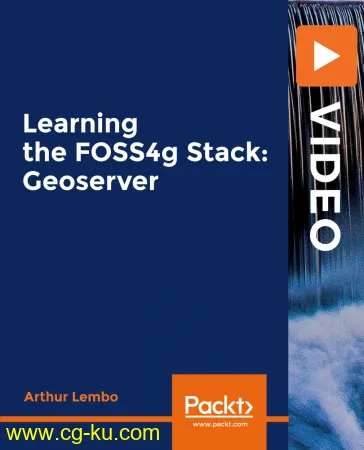MP4 | Video: h264, 1280x720 | Audio: AAC, 44.1 KHz, 2 Ch
April 20, 2020 | ISBN: 9781800208926 | English
Duration: 22 Lessons (3h 36m) | Size: 797 MB
Learn how to build an Internet Map Server application using free and open-source GIS
Learn
Configure GeoServer to make it operate as a cloud-based spatial data server
Start GeoServer and navigate the interface
Load spatial and attribute data into GeoServer
Create an app that allows clients and a server to interact with data
Load the data on a server from multiple sources such as Postgres and GeoPackage
Upload vector, raster, and attribute data on the Internet with GeoServer
About
In this course, you will understand the process of installing GeoServer, loading data, creating server-side analytical processes, and finally, rendering the data on the client-side using OpenLayers 3.0, all in a step-by-step manner.
The course starts by guiding you through installing GeoServer, Postgres, and QGIS, and then analyzing the data that you’ll be using throughout the course to learn various concepts. Once you load the data into Postgres, you will learn how to start the GeoServer and navigate the interface. You will create workspaces and stores and add layers from different stores including shapefiles and GeoPackage. As you proceed, you will understand the services in GeoServer including Web Map Service (WMS) and Web Feature Service (WFS). In the concluding section, you will go on to cover the implementation of OpenLayers 3.0 for interacting with GeoServer from the client-side.
By the end of this course, you'll be well-versed in the basics and proficient in creating impressive Internet mapping sites.
Features
Understand the basics of creating a front-end in a web mapping browser using OpenLayers
Learn how to develop back-end server processing to deliver the results of spatial operations with both SQL and CQL
Explore how to drive the relationship between the Internet user and the back-end server


发布日期: 2020-04-21